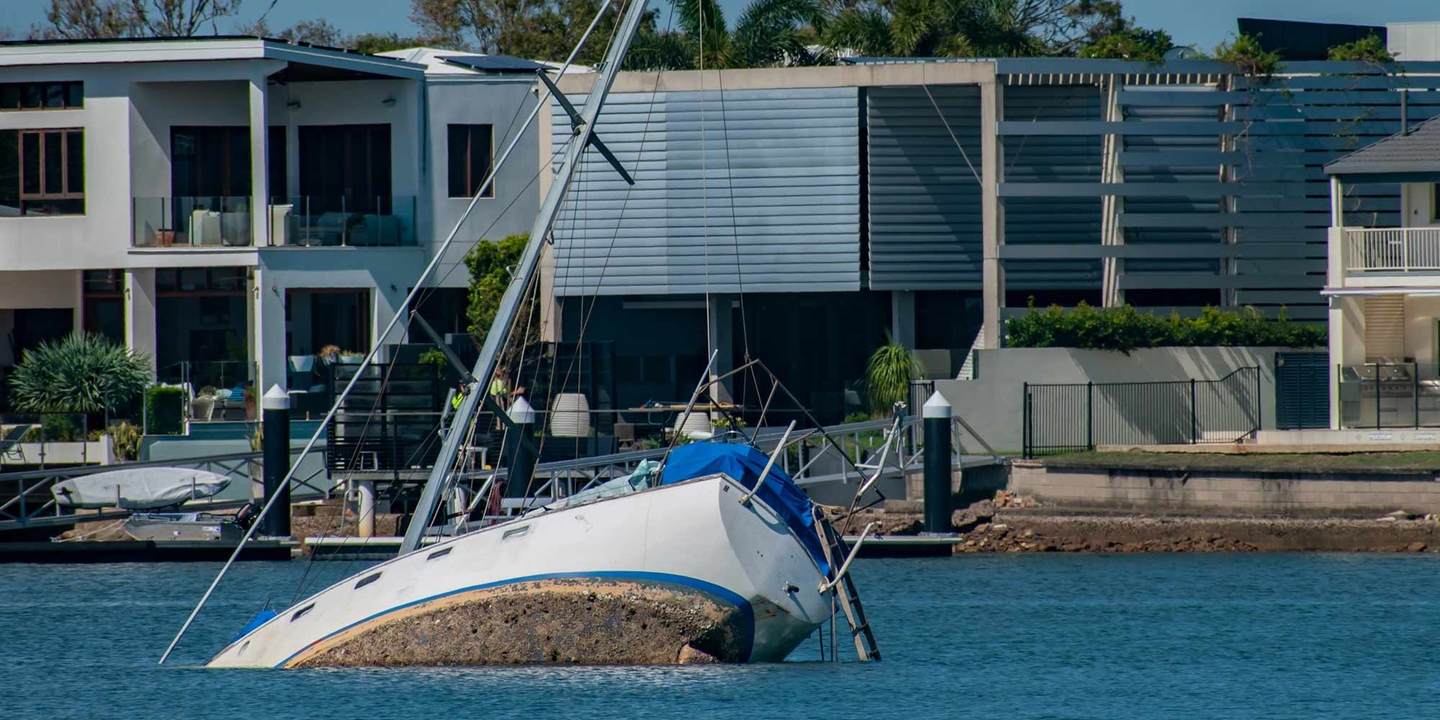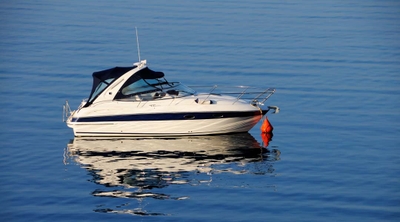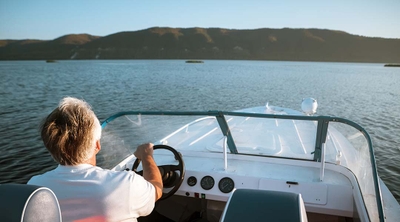What is a capsized boat?
3 min read
When a boat capsizes, it rolls onto its side or turns upside down, tossing passengers and everything else on the boat into the water. According to the U.S. Coast Guard, capsizing is one of the top causes of boating injuries and fatalities. Before leaving the dock, it’s important to understand what causes boats to capsize, how to prevent it, and what to do if a boat capsizes while you’re on board.
What causes a boat to capsize?
When a boat capsizes, it’s usually because of excess weight, uneven weight distribution, inclement weather, leaks, waves or sharp turns. Boats have a maximum capacity limit for a reason. If you overload a boat with too many people or supplies, you increase the risk of capsizing. Evenly distributing the weight of the passengers and supplies onboard is just as crucial as not overloading it. If there’s too much weight in one area, you’re more likely to tip over.
Mother Nature can cause trouble for even the most experienced captains. When rain and wind kick up, boats become less stable and more prone to capsizing. If your boat has a leak that’s letting in water, the excess weight can throw you off balance. Check the drain plugs and fittings to ensure the water stays where it belongs — outside of your boat.
Whether they’re from the wake of another boat or the natural churn of the water, waves create instability that can turn your boat upside down. Just as speeding can increase your risk of an accident on the road, excess speed and sharp turns increase your risk of capsizing on the water.
How to prevent a boat from capsizing
Taking the proper precautions can reduce your risk of your boat capsizing. Ensure your boat has evenly distributed weight, be aware of your surroundings, pay attention to the weather, approach waves head on and swing wide and slow down when turning.
Before you leave the dock, spread out your passengers and their belongings so there isn’t too much weight in one area of the boat. The wake from other boats can create waves that throw you off balance. Be mindful of other boaters around you so that you can adjust as necessary. The weather forecast could change quickly, even if meteorologists in your area predicted clear skies and smooth sailing earlier in the day. Keep a marine radio onboard and listen to the National Oceanic and Atmospheric Administration’s (NOAA) continuous weather broadcasts to stay on top of any changes to the forecast.
Use appropriate speed and give yourself enough space when turning. Navigating waves properly can help reduce your risk of tipping over.
What should you do if your boat capsizes
Find everyone and get out of the water
Account for everyone who was on board. If someone is missing, they could be trapped under the boat. If you can get your boat upright again, do it. If you can’t, climb onto the hull. Capsized boats don’t often sink, and getting out of the water will help you stay warm longer.
Stay with the boat and hang on
A boat is much easier to spot than a couple of people floating in the water. Stay with the boat if it’s safe to do so. If your boat drifts away or sinks, look for something you can hold onto while waiting for help to arrive. If there’s nothing to hold onto, float with your head out of the water. Cross your arms over your chest and pull your knees up to your chest to help conserve energy and prolong the loss of body heat. Don’t try to swim or tread water. Both use significant amounts of energy and can reduce your body temperature more quickly.
Signal for help
If you have an emergency position-indicating radio beacon (EPIRB), use it. If not, wait until someone is likely to see your flare before sending it up. Someone will either come to your aid or send help when they see your distress signal, but it may take time. Do your best to stay calm while waiting.
Tips to stay safe if your boat capsizes
Everyone on board should wear a life jacket the entire time they’re on the boat. Put flares, extra life jackets, and distress signals in a waterproof bag you can access if your boat capsizes. You may also want to make a float plan and keep an emergency position-indicating radio beacon (EPIRB) on board. An EPIRB sends an SOS signal with your current position to local satellites.






